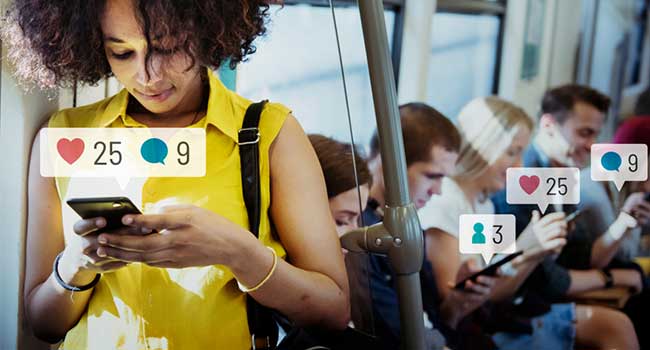
Page 2 of 2
10 Tips for Keeping Your Personal Data Safe on Social Media
Social media plays a vital role in our daily life. Websites like Facebook, Twitter, and Instagram are the most common social channels used to connect with our loved ones. With over 2.77 billion social media users today, such social media websites make a perfect platform for identity thefts. With huge user database of private information, it is the responsibility of social media platforms to keep personal information safe.
Last week, news circulated regarding the most commonly used social media website “Facebook” that stored “hundreds of millions” of account passwords and left them unencrypted. All the passwords were in plain text and viewable to thousands of in-house employees. If companies like Facebook have these issues, how can we rely on other platforms?
Every year, millions of people fall victim to data breaches and identity theft. If you fall prey, it can cost you loss of personal data along with lots of stress. It happens when you let your guard down and depend so much on these platforms for your security. Online safety is the most onerous task, but few ways can help you stay safe on social media.
Here are ten ways to keep your personal information safe while still enjoying the benefits of making social media connections:
1. Use a strong password and use a password manager
People use multiple social accounts for various purposes. Nevertheless, if your password is weak, your account’s security gets compromised. Also, if you are using the same password for different accounts, your all accounts can get hacked by hackers.
Make sure to use a unique and strong password for you every social account. Your password must include numbers, words, upper and lowercase letters, and special characters. The more strong password you use, harder for a hacker to crack your password. Change your password at least once a month. Try to keep different passwords for different social media accounts. If you are having a problem to manage your passwords, you can use password managers.
2. Add two-factor authentication for every social account
If you are using two-factor authentication on your social accounts, it will add an extra layer of security to them. When someone logs into your account from new location, device or browser; you will be sent a password, that needs to be entered for logging into your social account. This means that every time you log in, you’ll also need to enter a unique code sent on your phone by the social media website. Many people think it's time-consuming, but if you are seriously concerned about your privacy, you need to apply two-factor authentication on your each and every social account.
3. Setup security answers and update your privacy settings
All social media platforms give you the option to limit your audience. But many people are unaware of its importance. It is necessary for every user to explore, try and overview those settings. You can also set up security questions on your accounts. Instead of setting common questions like “What is your mother’s name?” or “From where you are?”, use questions that are hard for everyone to think about.
<>
4. Be careful what you share
Avoid sharing personal information online because your information, including your email address, phone number, and social security number, is worth a lot of money to hackers and data mining companies.
Take a look at your social media profiles and try to keep them barren—the people who need to know your birth date, email address and phone number already have them.
5. Use a VPN
If you want to keep your conversations, messages, and calls secure; you can use an encryption tool which is called VPN. A VPN helps you to keep your communication encrypted and secure. All your information will be passed through a secure tunnel between the websites and your VPN services provider.
If you are really concerned about your privacy, you might have a question; how do VPNs protect my data? As mentioned here “Even though all the information going to and from the customer to the VPN is encrypted, all the information being sent through the outgoing VPN server is subject to the regular rules of the wild internet.”
6. Keep system up to date with antivirus
Keep your system updated with the latest antivirus. Never operate an internet-enabled computer without installing anti-malware and antivirus software. There are many paid and unpaid antivirus software available. To secure mobile devices, use antivirus apps to secure your online activity and important data.
7. Verify friend requests and block fake accounts
Platforms like Facebook and Instagram are full of fake profiles. Those fake accounts can be a hacker, a suspicious organization or even a frenemy who wants to monitor your activities.
Don’t accept any friend request without verification. If someone is disturbing you, it's good to report and block such profiles.
8. Regular check your mailbox to check suspicious login attempts
Keep a habit of checking your emails regularly. Many people ignore emails from Facebook, Twitter or other social accounts. They might think that it's a notification from their friends, but it could be login attempt by a hacker, and your social platform wants to inform you about it.
If you got a suspicious email or login attempt to your account, change your password as soon as possible.
<>9. Use an updated browser
Use an updated browser for a pleasant browsing experience. Make sure to use the latest version of the browser that is not vulnerable to hackers. Also, don't save your passwords on your browser because if your system gets compromised, hackers can easily read your saved passwords from the browser in just a few clicks.
10. Log off to your accounts when used.
The last important and good practice is, always log off to your system when you are done with it.
About the Author
Susan Alexandra is a small business owner, traveler and investor of cryptocurrencies.